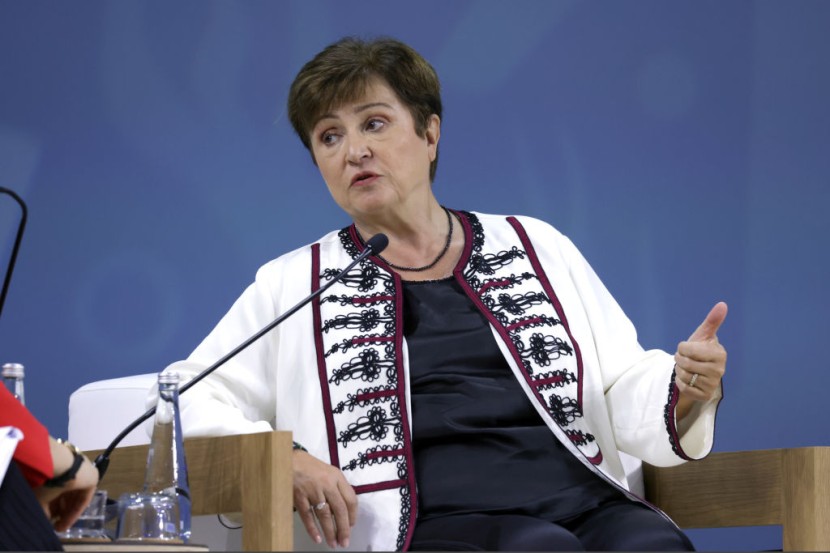International Monetary Fund (IMF) chief Kristalina Georgieva weighed the benefits and risks of artificial intelligence on the global economy during the annual World Economic Forum.
Georgieva said that while AI poses various risks to job security around the world, it also offers a "tremendous opportunity" to boost flagging productivity levels and fuel global growth. She argued that artificial intelligence will affect 60% of jobs in advanced economies.

With the technology expected to have less effect in developing countries, Georgieva said that around 40% of jobs worldwide will be impacted. Citing a new IMF report, she said that the more higher-skilled jobs there are, the higher the impact of artificial intelligence.
However, the IMF report that was published on Sunday evening noted that only about half of the jobs that are impacted by AI will be negatively affected. The rest could actually benefit from enhanced productivity gains due to the technology.
The IMF chief noted that some jobs could disappear altogether, which is not good, but artificial intelligence could also enhance others. She noted that this could make workers more productive and increase their income levels, as per Yahoo News.
The agency also predicted that as labor markets in emerging markets and developing economies see a smaller initial impact from AI, they are also less likely to benefit from the enhanced productivity that the technology could bring to the workplace.
Georgieva said that they must now focus on helping low-income countries in particular in order to move faster to be able to catch the opportunities that AI will present. The IMF chief noted that while artificial intelligence is "a little scary," it could also be extremely beneficial to everyone.
The IMF is expected to publish updated economic forecasts later this month, which would show the global economy broadly on track to meet its previous forecasts. Georgieva said that it is "poised for a soft landing," adding that monetary policy is working well to bring down inflation.
Read Also : German Software Firm SAP Hit With Hefty $220 Million Fine for Bribery Charges Levied by US
Benefits and Risks of AI
The agency's report also continued to note that the situation with AI could exacerbate the digital divide and cross-country income disparity. It also noted that older workers are likely to become more vulnerable to the change that is brought about by the technology, according to France24.
Georgieva said that the IMF sees an important opportunity for policy prescriptions to help address concerns regarding the matter. The agency said that the effect on labor income will largely depend on the extent to which AI will complement high-income workers.
It argued that if the technology significantly complements high-income workers, it could lead to a disproportionate increase in their labor income. Furthermore, gains in productivity from firms that adopt the technology will more likely than not boost capital returns, which could also favor high earners.
The IMF warned that in most scenarios, artificial intelligence will worsen overall inequality, which is a troubling trend that policymakers should proactively address. It noted that it is crucial for nations to establish comprehensive social safety nets and offer retraining programs for vulnerable workers, said the IMF.
Related Article : China Expresses Alarm Over U.S. Restrictions on Chip Production
© 2026 HNGN, All rights reserved. Do not reproduce without permission.








